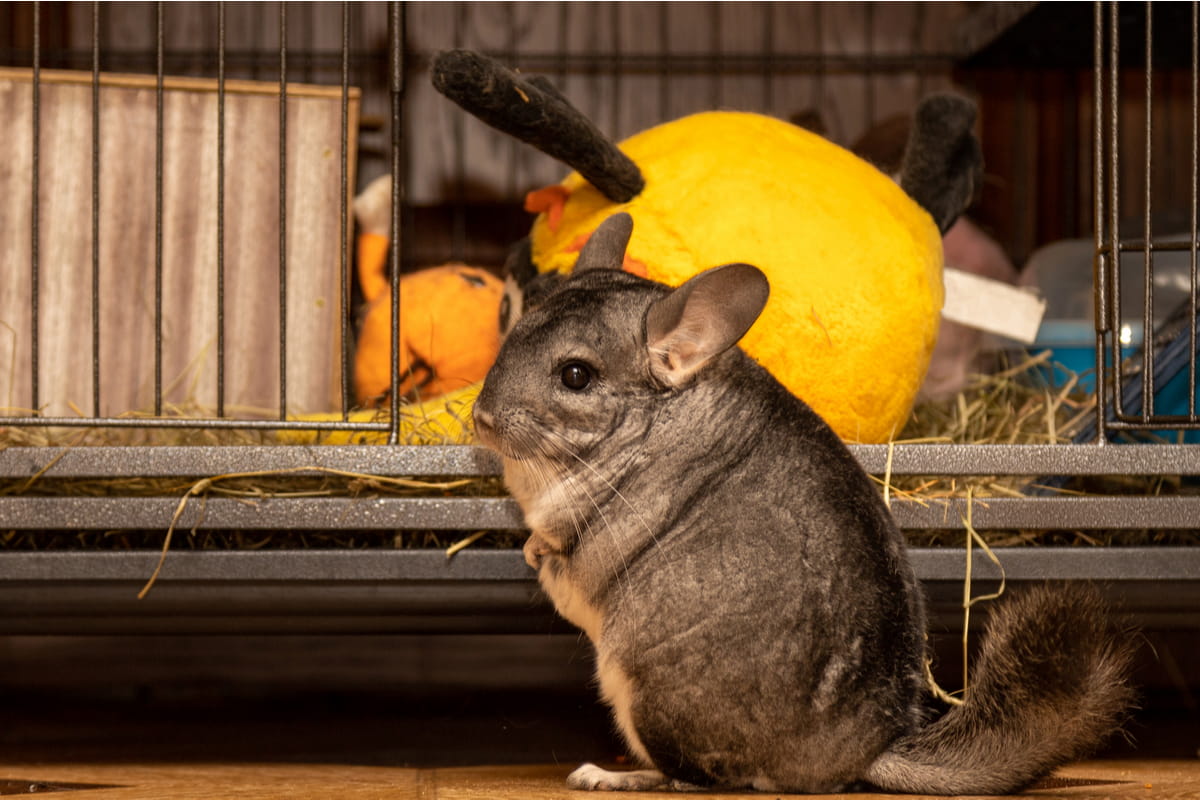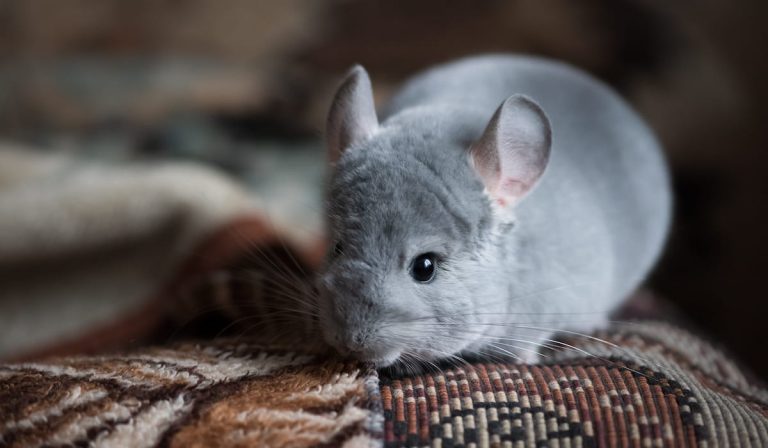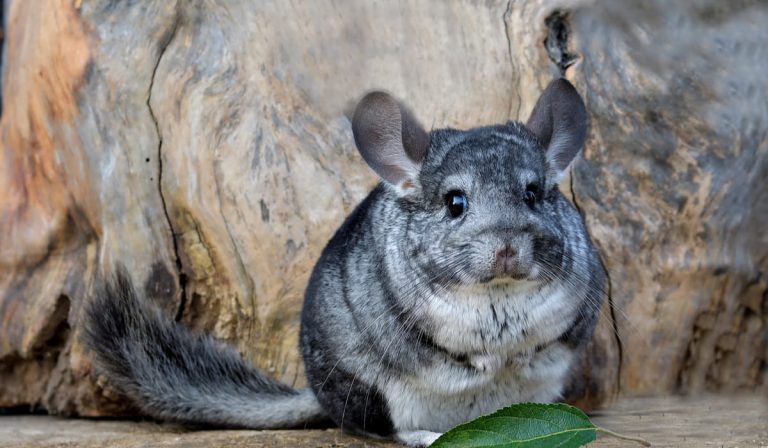Can Chinchillas See in the Dark?
Chinchillas are cute rodents. They are also easy to keep. People who raise chinchillas know that chinchillas thrive well indoors in a large cage. They are also crepuscular, so they are most active in the evening and at night.
Since chinchillas are active in the evening and night, do they need nightlights? Can chinchillas see in the dark?
Chinchillas can see figures and objects at night. Chinchillas have adapted to be active in the late hours of the day, so they can see at night. If you raise your chinchillas with constant light (even at night), however, they will not see as clearly at night.
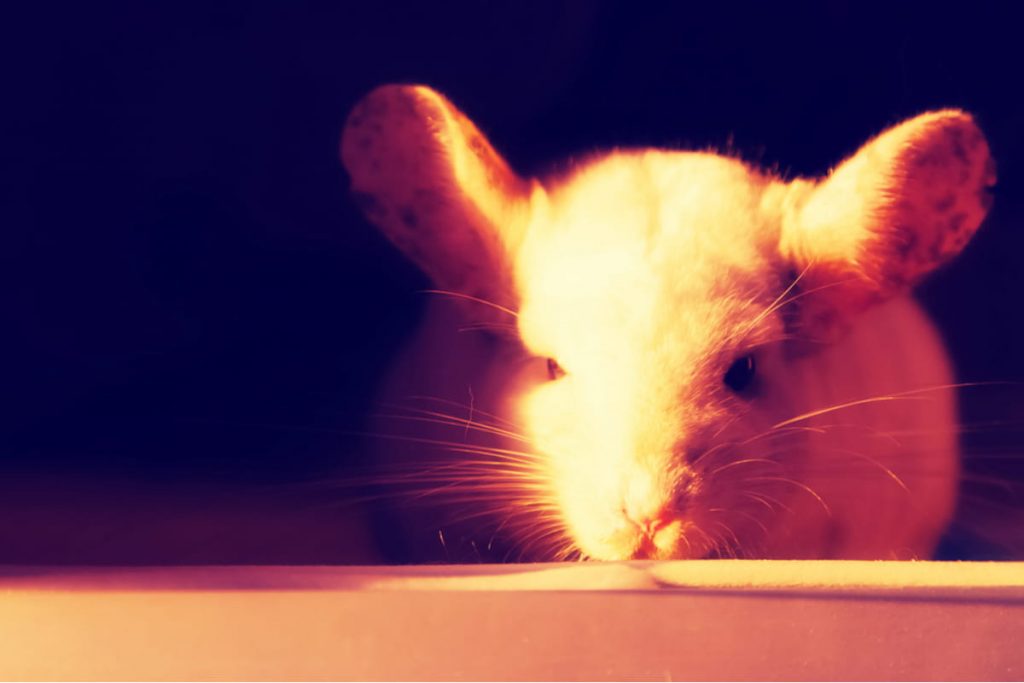
The Vision and Behavior of Chinchillas
Chinchillas in the wild are crepuscular, so they are most active in the evenings and also at night. In the wild, chinchillas need to run away or hide from their predators, so they are adapted to seeing at night.
Also, aside from the moon and stars, chinchillas in the wild do not have nightlights, so they are well-adapted to seeing at night.
Chinchillas Are Highly Adaptive
Chinchillas show a lot of signs of intelligence and are very adaptive. Your chinchillas know when you want to take them out of their cage, they know when you are preparing to wash their cage, etc.
In the case of seeing at night, whether your chinchillas will see at night or not depends on what they are used to.
What was your chinchillas adapted to in their previous home? Were they provided nightlights? Were they kept in the dark? These factors will tell whether your chinchillas can see in the dark or not.
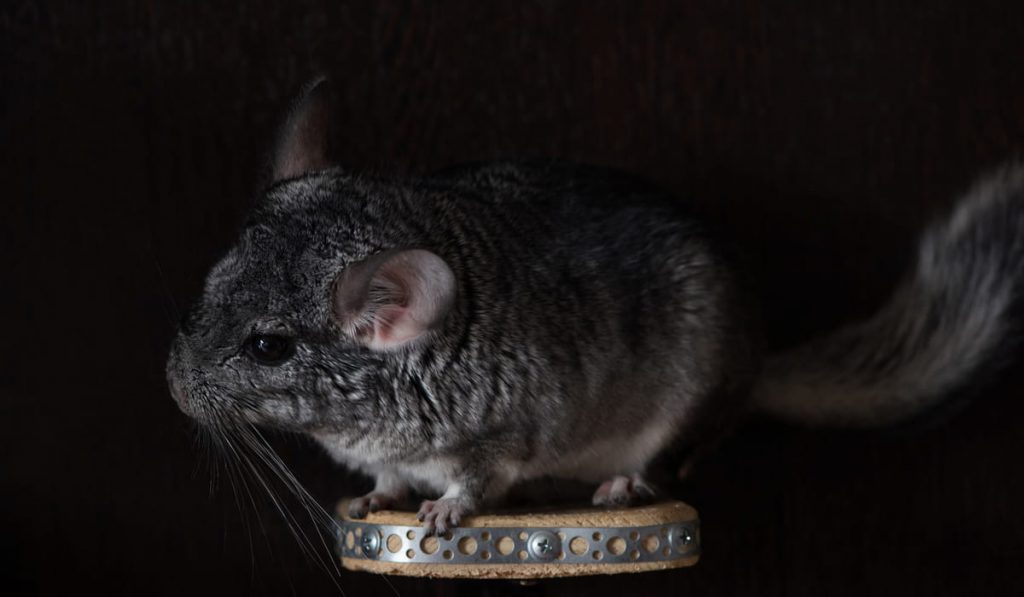
Factors to Consider in Giving a Nightlight to Chinchillas
- What They Have Adapted To: If your chinchillas are adapted to living at night, do not give them a nightlight. Otherwise, you should provide one.
- How Your Chinchillas Act in Darkness: If your chinchillas need a nightlight, you will know from their behavior at night. If they are restless and show signs of discomfort, you should give them a nightlight and see if they act more comfortably.
- If You Have Other Pets: If you have other pets such as cats and dogs that can sneak up on your chinchillas, you should provide a nightlight so that your chinchillas can easily see the other pets coming.
Remember that in the wild, chinchillas have access to moonlight and starlight. Even though the moon and stars are not very bright, they give enough light for chinchillas to see.
In their cage indoors, however, moonlight and starlight cannot reach your chinchillas, so giving them nightlight is not a bad idea.
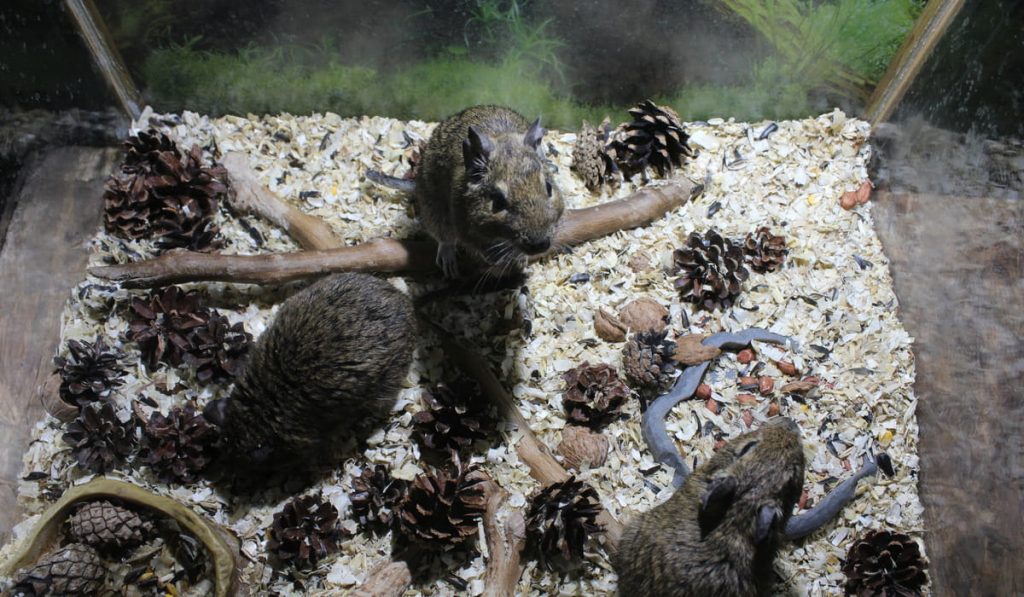
Direct Sunlight is Not the Best Idea for Chinchillas
Chinchillas are crepuscular, so they are very active in the evening (i.e. twilight).
When you compare the amount of sunlight outside your house with sunlight that can reach the cage of your chinchillas indoors, you may be tempted to shift their cage to a window so that they can enjoy the sunset.
Do not keep the cage of your chinchillas in any location where your chinchillas will be exposed to direct sunlight.
Chinchillas prefer low temperatures to high temperatures and sunlight will stress them by overheating them.
It does not matter whether your chinchillas have access to the evening sun or not, but if you want to give them a sight of a sunset, you can either switch on the nightlight early or release them from their cage so that they can view the sunset from a window nearby.

Ways to Help Your Chinchillas to Feel Comfortable in the Dark
1. Help Your Chinchillas to Adapt to the Room and Space First
Remember that chinchillas are highly adaptive and if they are used to having light at night, you should not keep them in total darkness. Here’s what you should do:
- Provide a nightlight close to their cage
- Shift the nightlight a few feet away from their cage regularly (could be every 2-3 days).
- When the nightlight is far away from the cage of your chinchillas, switch it off once every 2-3 days for 2-3 weeks.
- When you observe that your chinchillas are fully comfortable at night and no longer need the nightlight, you turn it off and keep for occasional use.
2. Keep Your Chinchillas in a Noise-Free Room
Aside from living in a totally dark room, your chinchillas can be afraid at night because of noise.
Keep your chinchillas in a room that there is little to no noise at night. In a quiet room, your chinchillas can hear themselves and other chinchillas, so they are more comfortable.
3. Keep More than One Chinchilla
Chinchillas are social animals, so you should not raise only one. A lonely chinchilla will be very restless and uncomfortable at night because there are no chinchillas around.
If you like, you can raise chinchillas along with guinea pigs (or other suitable rodents).

Related Questions and Answers
1. Do Chinchillas Have Better Eye Sight Than We Do?
We have similar eyes to chinchillas, with the difference that our eyes see more details than the eyes of chinchillas. Technically, this means that we have better eyesight than chinchillas.
The eyes of chinchillas contain all the same parts as human eyes except the fovea. This small pit is responsible for picking the details of images.
While we can see both near and far objects with seemingly sharp eyesight, the sight of chinchillas is a bit blurrier because of the absence of the fovea.
2. Can Chinchillas See Colors (Are They Color-Blind)?
People in the past thought that chinchillas are color blind. A recent study, however, proved that chinchillas are not color blind. The study showed that the eyes of chinchillas have both rods and cones.
With rods, chinchillas can see at low light (mostly black and white). With cones, chinchillas can see colors (especially when there is light present). With the presence of cones in their eyes, chinchillas can see colors.
3. Should You Play with Your Chinchillas at Night?
Depends on what you want. Chinchillas are active at night, so they do not have any problem with you playing with them at night.
You, however, are diurnal and need to rest at night. You can play with your chinchillas at twilight if that is more convenient for you.
4. What Else Do Chinchillas Need?
Here are other requirements of chinchillas:
- Sand Bath: The natural habitats of chinchillas have very low levels of humidity. The humidity level in your house is pretty high, so the fur of chinchillas can trap a lot of moisture which can encourage the growth of microbes. To prevent the buildup of moisture, you should give your chinchillas a sand bath.
- Bedding: Chinchillas need bedding. Bedding helps your chinchillas feel comfortable in their cage. Bedding also absorbs moisture and smell from the waste of your chinchillas, so bedding will help by reducing how often you need to wash the chinchilla cage.
- Exercise: You should bring out your chinchillas from their cage in the evening so that they can explore the room/house and exercise.
Make sure you make your chinchillas as comfortable as possible.

5. What Are Other Crepuscular or Nocturnal Pets?
Do you love nocturnal or crepuscular animals? Here are some that you can keep as pets:
- Cats: In recent years, cats are becoming more active in the day because of domestication. Originally, cats are nocturnal.
- Snails: Snail species such as the Giant African Snail are crepuscular. They eat more in the evening hours but are also active at night.
- Hedgehogs: Hedgehogs are active in the evening and night.
- Pythons: Pythons and other snake species are more active at night, but recent ones are active in the day because of domestication.
- Some Hamster Breeds: Winter White Russian Hamsters and Chinese hamsters are some of the few hamster species that are active at night.
Final Thoughts
Chinchillas can see in the dark and they are not color blind.
Even though they can see in the dark, chinchillas can lose their sight at night if they are raised in a room with nightlights.
To keep your chinchillas comfortable at night, follow the tips in this article.

